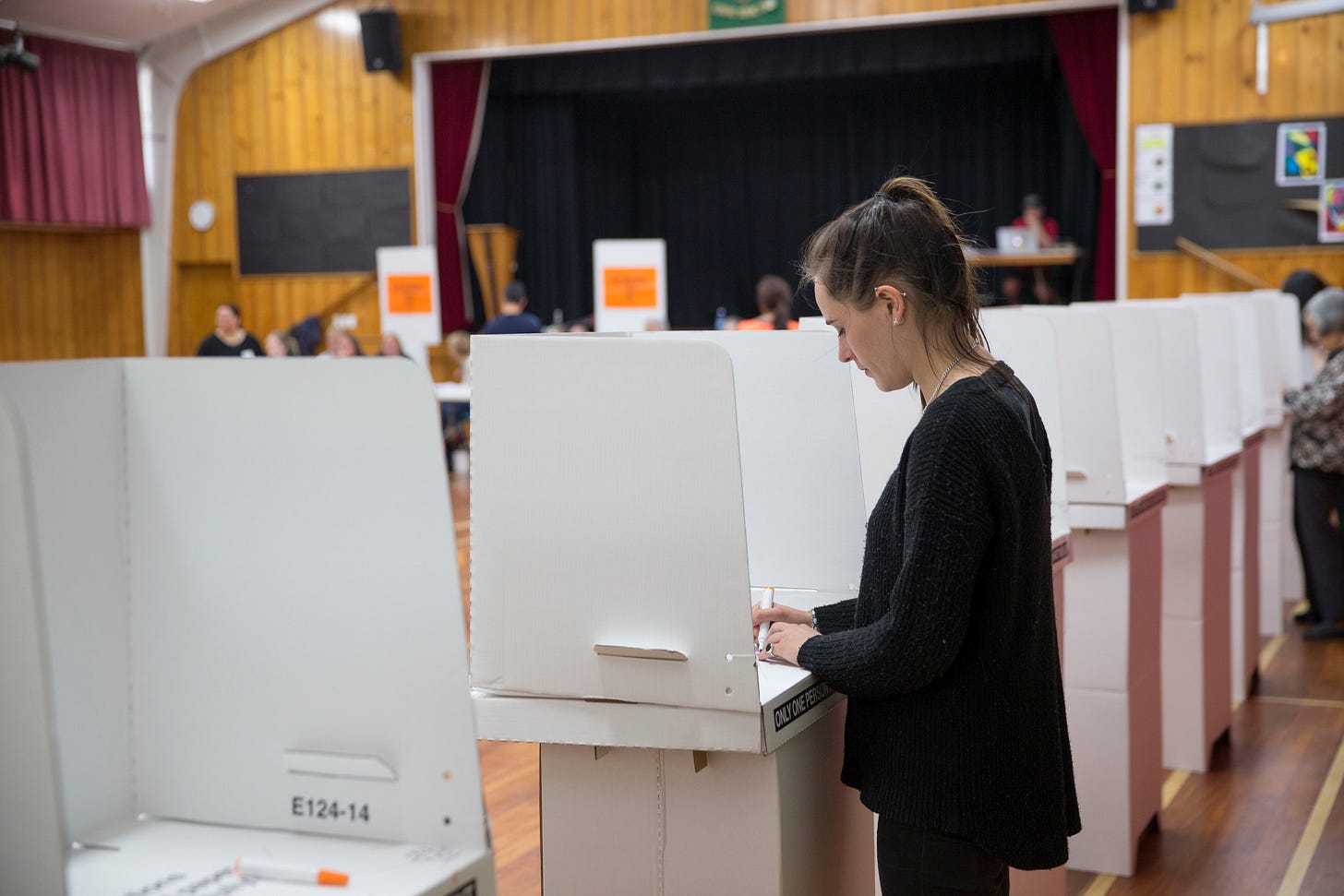
Australia’s 2025 federal election marked a momentous turning point: for the first time, younger generations—Gen Z and Millennials—outnumbered Baby Boomers at the ballot box. A record 18 million Australians were registered to vote, with the combined Gen Z/Millennial cohort accounting for some 7.7 million votes versus 5.87 million for Boomers, carrying Labour to a landslide victory of 86 seats to the Coalition’s 37.
Actually, this generational realignment is not unique to Australia...
But before we get to that, let me first note how tired I am of the demographic duel. You’ve seen it; the labels and stereotypes deployed by one generation against another, amplified by angst-hungry algorithms that care nothing for what unites us.
This callow confrontation denies the natural flow and commingling of generations, the gentle human truth that grandparents dote on their grandkids indulgently, and love their children (now grown up) who raise them.
Of course demographics remain a useful (albeit blunt) instrument for assessing trends. Each generation is different; their experiences and opportunities are not the same, nor are their life-stage-related concerns. Such distinctions play out politically, and have produced the long-bemoaned electoral dominance of “Boomers”. The math is simple: oldies have the numbers and win. Or they used to.
As mentioned, Gen Zers plus Millennials amounted to 43% of voters across the Ditch and—to quote one commentator—“it mattered”.
Increasingly, younger Kiwis will hold the balance of power.
Housing affordability was a defining issue for younger voters. A May 2024 YouGov poll found that 36% of Australians now regard housing affordability as the top federal concern, a view held by 50% of 18–34-year-olds—the generation that constituted the “emerging majority” that shaped the 2025 election outcome.
Where polling goes, policy follows. Australia’s major parties responded with competing housing policies in the campaign’s final weeks. Labour pledged A$10 billion to build 100,000 new homes for first-time buyers—including a guarantee allowing just a five per cent deposit—while the Coalition matched that A$10 billion price tag with a one-off A$1,200 tax offset and its new first-home-buyer mortgage-deductibility scheme.
Housing affordability perplexes Kiwis too; perhaps even more so than Aussies. Baby Boomers have long dominated our housing market, chasing lucrative capital gains, pumping up demand and prices. Yet 80% of Kiwis still see home ownership as the ultimate goal, even as younger generations increasingly fear they’ll never get a foot on the ladder.
So, might Kiwi Gen Z and Millennials swing elections here? Mapping the Electoral Commission’s five-year age-band turnout figures onto generational cohorts—assuming an even age distribution within each band—suggests our demographic centre of gravity has already shifted: in the last election, Gen Z and Millennials probably outvoted Boomers and older New Zealanders. So we beat Australia… again. Nice!
The generational tide is turning. Increasingly, younger Kiwis will hold the balance of power. To the politicians reading this: sharpen your wits, not your knives. Tackle housing affordability head-on and halt our brain drain—and you’ll earn more than votes; you’ll secure a truly historic tenure at the Beehive.



